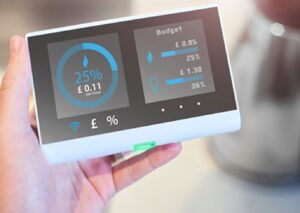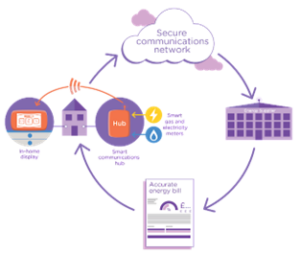Energy Management Systems
SMART CITY SOLUTIONS
AND TOOLS

Image source: Telegraph
Introduction
The potential of energy management systems (EMS) goes beyond accurate metering technology and better system control. Green cities can integrate EMSs into a smart grid which can match energy demand with supply and decrease GHG emissions thanks to resource optimisation. This creates great opportunities to improve services, bolster businesses, energise green growth, and improve our communities with sustainable solutions.
Description
Smart Metering is an energy management system (EMS) technology which can give consumers clear and comprehensive information about their energy consumption and help them become more energy efficient. Smart meters typically record customer consumption and other parameters with the utility provider and its clients, supporting the management of contracts and control of the power demand. Smart Metering provides better information to customers in order to optimise power demand and consumption. Smart Metering is a technology which adds value to the tenants energy use by encouraging behavioural changes towards energy efficiency.
Utilities are replacing analog meters with digital smart meters that automatically capture information about electricity consumption and transmit it back to electric companies. Smart meters provide accurate measurements of electricity use, thus, citizens can save money if they monitor their consumption and make a positive decision to cut back.

The smart grid refers to “informed” energy distribution grids that optimise transmission of electricity, so that it becomes decentralised in relation to the power plants where it is produced. The figure illustrates how smart meters record, store and transmit, via secure wi-fi networks, real-time energy data on the quality, quantity, and time of electricity consumption by buildings back to the energy provider. This ensures accurate billing and outage notifications, while providing the building blocks for matching energy demand with energy supply in green cities today.

Image source: greencityimes.com
Advantages and challenges
+ No need to submit meter readings since it tracks your usage and spend accurately.
+ Encourages better energy habits.
+ Enables dynamic pricing and income optimization.
+ Provides real-time data useful for balancing electric loads and reducing outages.
+ Help reduce your carbon footprint.
+ Sometimes only large implementations can achieve the necessary critical mass.
– Transitioning to new technology and processes is costly and risky.
– Managing public reaction and customer acceptance.
– Making a long-term financial commitment to the new metering technology and related software.
– Managing and storing securely vast quantities of metering data.
Further Information

